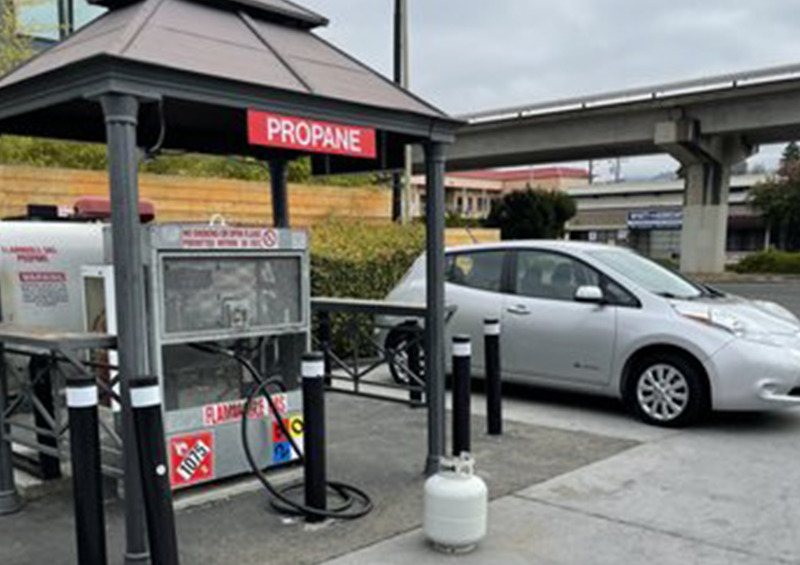Introduction
Propane is used by many people as an efficient fuel source in homes, workplaces, and industries across the globe. Whether you are utilizing propane for heating or powering equipment, ensuring safety should remain a primary concern. Understanding how to handle propane tanks and equipment safely can prevent accidents and ensure smooth performance. Here is everything you need to know:
Understanding Propane Basics
Before looking into safety measures, it is essential to understand the fundamentals of propane before you consider the safety precautions that need to be followed. Propane is a hydrocarbon extracted as a byproduct from natural gas processing and crude oil refining. It is commonly stored in pressurized tanks.
Choosing the Right Propane Tank
Selecting the appropriate propane tank is crucial for your safety. Tanks come in various sizes, ranging from small 1-lb cylinders to large 500-gallon tanks. You should consider aspects such as your consumption levels when choosing a tank size. Search “propane tanks for sale” or “500-gallon propane tank” to find suitable options near you. For propane installation purposes, consider the space availability and the local rules that you need to follow.
Safe Handling and Storage Practices
Proper handling and storage of propane tanks are important to reduce the risk of accidents. Make sure that there is adequate ventilation in storage areas. It is important to keep the tanks upright and away from direct sunlight and flammable items. Check propane equipment regularly for damage or leaks.
When you are not sure how to handle propane equipment, contact “propane companies near me” for professional assistance. Regular inspections conducted by qualified individuals are necessary for maintaining propane installations.
Recognizing Warning Signs
If you smell the stench of rotten eggs, check for leaks. Also, remember that propane is always supposed to burn with a blue flame. Irregular flames or soot buildup might indicate that propane isn’t burning properly.
Emergency Preparedness
In case of an emergency, immediately call for professional help. Switch off all appliances because they might provoke an explosion. Turn off the gas supply and make everyone leave the building until it’s safe. Keep a functional fire extinguisher designed for flammable liquids nearby and always have emergency contact numbers.
Safety Precautions during Refills
When refilling or exchanging tanks, follow the safety protocols. Always transport tanks in an upright position in a well-ventilated vehicle. Avoid overfilling tanks, as excess pressure can cause leaks or damage. Depend on reliable propane suppliers so the work is done by professionals to keep you protected.
Benefit from Propane Delivery Services
For a convenient propane supply, consider propane delivery services. Many companies offer “propane delivery near me” options so you can have a steady supply of propane without the need for continuous trips to refill tanks.
What You Should Not Do When Using Propane
Do not place propane equipment in enclosed or suffocated areas. Also, do not use outdoor appliances in indoor places. If some part of a propane equipment needs fixing, do not attempt to repair it yourself. Always seek professional guidance in such cases. Moreover, avoid using power sources while standing in water to prevent electrocution.
Routine maintenance is essential for the safe functioning of propane equipment. Schedule frequent inspections by certified technicians to check for leaks, corrosion, and proper functioning of parts.
Conclusion
Handling propane equipment safely is crucial to protect lives and property. By understanding propane basics, utilizing professional services, and adhering to safety protocols, you can enjoy the benefits of propane safely. Remember to prioritize safety in all propane-related activities, and never hesitate to seek professional assistance when needed.





